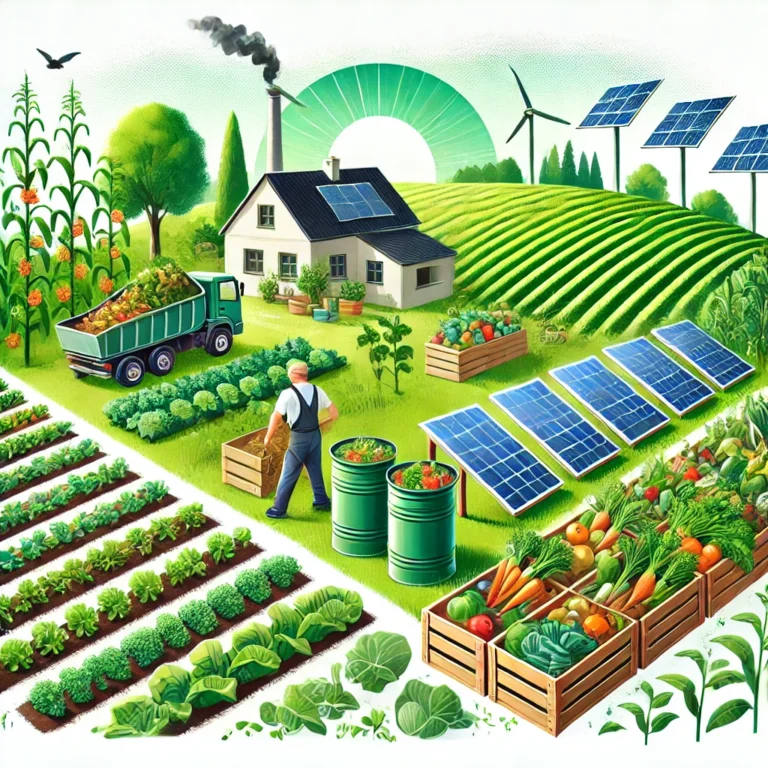1. Choose Organic Food and Beverages
One of the simplest ways to make your home more sustainable is to choose organic food and beverages. Organic farming practices avoid harmful pesticides and synthetic fertilizers, which means fewer chemicals in your food and less pollution in the environment. Start by purchasing organic fruits, vegetables, dairy products, and beverages like coffee and tea. Shopping at local farmers’ markets or joining an organic food co-op can also support sustainable agriculture and reduce the carbon footprint associated with transporting food.2. Use Organic Cleaning Products
Traditional cleaning products often contain harsh chemicals that can harm both your health and the environment. Switching to organic cleaning products is an easy way to make your cleaning routine more eco-friendly. Look for cleaners made with natural ingredients like vinegar, baking soda, and essential oils, which are effective at cleaning without releasing toxic fumes. These products are biodegradable and less likely to cause allergic reactions, making them a safer choice for your household.3. Opt for Organic Textiles
Your home’s textiles, such as bed linens, towels, and clothing, can also be a source of synthetic chemicals. Choose organic cotton, bamboo, or hemp textiles, which are produced without the use of pesticides and harmful dyes. These materials are not only better for the environment but are also softer and more breathable, making them a healthier choice for your family.4. Invest in Organic Skincare and Personal Care Products
What you put on your skin is just as important as what you eat. Organic skincare and personal care products are free from synthetic fragrances, parabens, and other harmful chemicals. Replace conventional soaps, shampoos, lotions, and cosmetics with organic alternatives made from natural ingredients. These products are gentler on the skin and less likely to cause irritation or allergic reactions.5. Grow Your Own Organic Garden
Starting an organic garden is a rewarding way to create a sustainable home. Whether you have a large backyard or a small balcony, growing your own herbs, vegetables, and fruits can reduce your reliance on store-bought produce. Use organic seeds and compost to maintain a healthy, chemical-free garden. Not only will you enjoy fresh, home-grown food, but you’ll also contribute to reducing carbon emissions associated with transporting produce from farms to stores.6. Use Organic Bedding and Mattresses
Consider investing in organic bedding and mattresses made from materials like organic cotton, wool, and natural latex. These products are produced without toxic chemicals and are often more durable than their synthetic counterparts. Organic bedding is not only better for the environment but also provides a healthier sleeping environment by reducing exposure to allergens and toxins.7. Choose Organic Baby Products
If you have children, making the switch to organic baby products is a great way to ensure their health and well-being. Look for organic baby food, clothing, and skincare products. Organic diapers made from natural materials are a safer alternative to conventional diapers, which often contain chemicals that can irritate sensitive skin. By choosing organic baby products, you’re providing a healthier environment for your child while also reducing your environmental impact.8. Use Organic Air Fresheners
Instead of synthetic air fresheners, which can contain harmful chemicals, opt for organic air fresheners made with natural essential oils. These provide a pleasant fragrance without the use of artificial scents and chemicals. You can also make your own natural air fresheners by using dried herbs, flowers, or citrus peels.9. Support Eco-Friendly Brands
Choosing to buy from brands that prioritize sustainability and eco-friendliness is another way to create a more sustainable home. Look for companies that use sustainable practices, recyclable packaging, and ethically sourced ingredients. By supporting these brands, you encourage the production of eco-friendly products and contribute to a more sustainable economy.10. Educate Your Household
Creating a sustainable home is a team effort. Educate your family members about the importance of using organic products and reducing waste. Teach them how to recycle properly, conserve water, and use energy efficiently. By fostering an eco-conscious mindset, you can ensure that everyone in your household is committed to making sustainable choices.Creating a sustainable home with organic products is a practical and effective way to promote eco-friendly living. By incorporating organic food, cleaning supplies, textiles, and personal care products into your daily routine, you can reduce your environmental footprint and contribute to a healthier planet. Start with small changes and gradually introduce more organic options into your home. Every step you take towards sustainability makes a difference, helping to preserve our planet for future generations.
